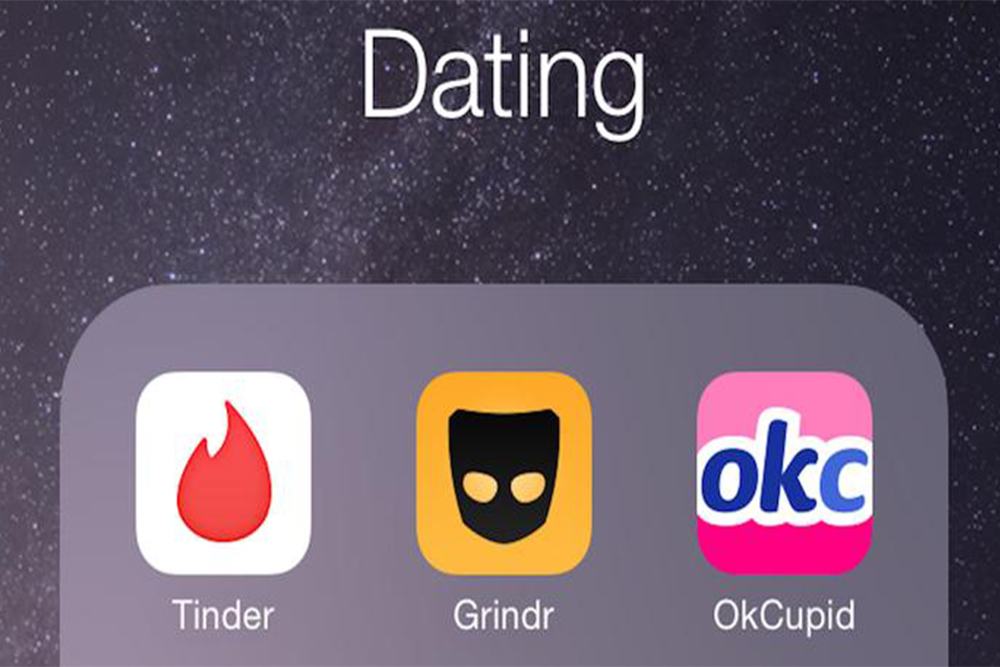It’s time for the big three letter word… S-E-X. Sex is such a big conversation to jump into, I mean, where do you begin? What even is sex? Is it merely where babies come from? How do you talk about it?? Ahh… well, Let’s Talk about Sex!
Sex has a lot of different definitions—while Webster’s Dictionary might define sex in terms of “being an act for organisms to reproduce,” it means so much more than that in today’s world. I started by asking a few teenagers, parents, and a medical professional what “sex” meant to them. The biggest contrast I found between the answers my participants gave and the dictionary definition of “sex” was the role of intimacy and emotion. “Ellie” (for the sake of privacy participants has been given fake names), a mother of both a teenage boy and girl, expanded on the importance of intimacy, saying, “For people who have a hard time sharing themselves, sex could mean a small experience, and for other people who don’t have those same kinds of boundaries, they could have sex, but have it not be as intimate, and for them it’s not as large of a thing.”
“Whatever you call sex is sex!” – “Ann”
When teenagers are first learning about sex (usually from teachers in a sexual education class), they are told that sex has varying levels of intimacy and vulnerability. While oral, anal, and vaginal sex are all forms of intercourse, many times teenagers disregard this perspective and maintain that sex can only mean a penis and a vagina. Local sixteen-year-old girl “Ann” has heard this perspective many times but strongly disagrees, “My friends think that sex is only a penis going into a vagina, but by that definition, does that mean that lesbians never lose their virginity?” She added, “And for gay men, a lot of people think that sex means only anal intercourse… I think it’s very fluid, there shouldn’t be a label on sex. Whatever you call sex is sex!”
Similarly, when I spoke to “Sashi,” a local medical professional, she agreed that sex has a broader definition than what many teenagers are mentally confined to. “Teenagers can have both a wide and narrow definition depending on the person,” she explained. “I define sex as anything from oral sex or ‘blowjob’ to anal sex, vaginal sex, or penetration. Sometimes, if you ask a teenager if they have been sexually active, they might say ‘no,’ but they have had anal sex or oral sex, which is still sexually active for health purposes.”
One of the biggest questions that young people begin to face while entering the world of sex is whether or not they are ready to have sex. How old should you be when you first “lose your virginity?” All of the teenagers I interviewed have been sexually active, and first had sex while they were 15.
However, this is not necessarily to say that 15 is the best age! I proceeded to ask both the teenagers and parents what age they believe is an appropriate one to begin having sex. Local high school student “Vince” replied, “It really depends on someone’s maturity and their knowledge of what sex actually is. Someone could be 15 and be sexually active and be able to handle the emotional and physical aspects of sex while another 15-year-old can’t.” Just as in most situations, there are a lot of factors that go into whether or not a teenager is ready.
While speaking with parent “Ellie,” she shared an interesting perspective on being sexually active at the age of 15. “The odds of a friend of mine expressing regret for having had sex under the age of 15 is high,” she explained. “Around 14 it starts to get more borderline, and 16 too, but under 15 I’ve heard ‘I didn’t know what I was getting into,’ or ‘I didn’t know what it meant, it felt like two friends hugging.’ I’ve heard all kinds of things from 12 to 15, but they seem to regret having sex more the younger they were.” Teenagers thinking about becoming sexually active often completely overlook the possibility that they might regret it. While you may know when you are personally ready, there are many situations in which people regret having sex too early.
Another vital consideration is the difference in age of two teenagers in the sexual partnership. When I was talking to “Ellie,” she brought up the legal chart that, “Helps to decide at what age range and what age sets off a developmental red flag. It’s not a red flag for a 17-year-old and 20-year-old to be in a relationship, but for a 12-year-old and 16-year-old to be in a relationship, there’s something to why that 16-year-old is into that 12-year-old that we should question—that’s a huge chasm to watch.” In the state of California, you must be the same age or within six months of the same age to legally engage in sexual activity as a teenager.
There are many different reasons why someone could end up regretting having sex too early, but one’s regret can often be related to fact that one is neglecting the emotional intimacy inherent in having sex. Everyone I interviewed agreed that being comfortable emotionally with one’s sexual partner is very important. “Emotions are really key in making the decision to have sex,” explained “Curt,” a father of a teenage boy. “Apart from the fact that sex is something that can lead to great feelings of pleasure and connectedness, those are heightened emotional states that can leave people vulnerable to bad treatment from others in a situation that could seem overwhelming or very consequential.”
Yet, while speaking with 16-year-old boy “Neil,” he brought up the perspective that, “It depends on if it’s someone’s first time or their 20th time, because if it’s their first time, and they don’t care if it’s special, that’s one thing. But if it’s their first time and they want it to be special, then it’s important.” Neil continued, “As the frequency increases, for example, if they are at a party to have sex, there’s a smaller need for an emotional connection.”
Sharing a somewhat similar perspective, parent “Ellie” addressed the option of someone looking for something more casual, “If two people are clear in what they want, then that’s okay. If the goal of hooking up is to connect with someone and get them to like you, then that concerns me. I couldn’t just say hook-ups are great in either circumstance… but I do think that a healthy hook-up is possible.”
Although all high school students in the San Francisco Bay Area go through some type of sexual education class, there’s no question that teenagers learn a majority of their sexual education from peers. “Even with my kids, we talk about a lot and they all know they can talk to me, but they don’t always necessarily want to,” reflected Ellie. “Being open and being easy are two different things, and teenagers also want to have a private life. Most [sex] education is absolutely from peers, with the media coming pretty close as well.”
“There’s this idea that boys are suppose to be interested in sex at all times, be pursuing sex, and take advantage of any opportunity to have sex.” – “Curt”
As a young woman growing up in today’s society, I definitely see more shame put on sexually active young women, as opposed to sexually active young men. The fact that so many of the world’s most derogatory names are things like “slut” or “whore,” whereas the male equivalent is “player,” just goes to show the double standard being put on young women. Curt, a local father, commented saying, “It’s very common for boys to get a green light that sex is okay while girls are told sex is something for them to stay away from. Even more than that, there’s this idea that boys are supposed to be interested in sex at all times, be pursuing sex, and take advantage of any opportunity to have sex,” Curt said, commenting on the early sexualization of young men. “While for young women, sex is something they should protect against and are told that men are trying to take something from them, and it sets up this bad situation that often continues into adulthood that’s not focused on partnerhood or mutual satisfaction, but rather this competitive model that prizes young men getting something from young women.”
I asked everyone who participated what advice they would give a teenager considering to become sexually active. While all agreed that feeling emotionally ready is one of the biggest steps, parent Ellie deepened this idea, saying, “If you can’t talk about it with that person, you shouldn’t be doing it with them, and I mean, that’s hard. That’s even hard for two adults. It’s such as marker of sexual health and to be able to have a conversation and talk to them, it shows you know what you want and want to show someone.”
Meanwhile, Curt added, “It’s important to know you can limit the amount of activities you do… and that can mean kissing, touching, hugging, taking off some of your clothes but not all of them. Sometimes people are comfortable with oral sex and nothing more, and those are all fine and can be a good way to learn about the other person and see how they treat you afterward.” Curt continued, “It helps you feel comfortable with their body or you with your body, it can take some of the pressure off that this is going to be a one-time thing.” I really appreciated how he mentioned how sex can change how you feel with someone after, teenagers often forget to think about the aftermath and how their relationship to their partner might shift.
Many teenagers are looking for ways to enter into the mature realm of sex and sexuality and so have taken to using dating apps and online services. Everyone I spoke to told me they were aware of at least one teenager who was using these apps, however Ellie shared that, “My son and his girlfriend met on a teen dating app. I was really impressed because without any adult knowing he was using it, they treated it seriously. They would meet each other online and talk for a while, then the two would meet up with friends in person and figure out if it is was safe. But they knew not to go alone and that’s stuff even adults aren’t smart about.” Ellie added, “For them, safety concerns and being skeptical was built into the app, and this group of teens took it very seriously.”

However, not all teens are as smart when using these apps. Many don’t use specifically teen apps, but instead use dating/hook up apps of all kinds, and it made me think about addressing dating apps in a educational type of environment. Parent and sex ed teacher Curt had this to say, “Most sex ed classes are in ninth grade with 14 and 15-year-olds, and [a class about dating apps] might be more aimed at juniors and seniors. But there are definitely specifics about where to meet people, how to meet them in person, and situations that have gone wrong or where someone had misrepresented themselves, it’s an area we currently don’t teach much about but need to develop.” Hopefully in the coming years, sexual education will begin to address the growing topic of online dating safety.
Similarly, after speaking with medical professional Sashi, she agreed that, “Even as an adult safety is always a concern but especially as a teenager because it’s so easy for people online to lie so safety would be my biggest concern. If they are meeting up with someone for the first time, I would suggest for them to meet up with a group of friends around and maybe even the next few times. If they feel that someone is a little suspicious or something’s off, they should inform an adult.”
When I had finished my interviews with parent Ellie, she brought up a topic that hadn’t occurred to me as something to address, but nevertheless, it definitely stuck with me. She brought up the prospect of talking to teenagers about reciprocation and making sure that both people in a partnership are happy, “When it comes to raising males in this culture, boys especially are going to be saturated with some bad role models through things like porn, and boys need to understand that they not only should but also have a responsibility to be in an equal partnership.” Ellie explained, “There are a lot of great guys who are really sensitive, very loving, great partners but they don’t think about it that way.”
I decided to ask the other parents participating if they agreed with this idea that teenagers should be told directly about reciprocation and Curt brought up perspectives, “Sometimes people enjoy to do pleasurable things for someone in the relationship without reciprocation… For someone, it might be very pleasurable to help their partner achieve an orgasm one night and that person doesn’t have one that night, maybe another night.” Although he also agreed with the Ellie’s perspective, “It overlaps talking about male and female relationships in terms of sexism and a less clear understanding of how women’s bodies work, women’s sexual pleasure, and desire being undervalued.” Curt concluded, “In a totally equal society, you wouldn’t have to talk about it, if someone just wants to give pleasure, or if both want it, that’s great, but we are not in that society, so for young men who are wanting to date women saying that clearly, that their partners should receive just as much pleasure as they do is probably an important point to make at this point in society.”
“I got a very explicit book for my son, ‘The Guide To Getting It On’, and put a post-it note on it.” – “Ellie”
Now trying to address reciprocation may seem like a particularly hard topic but after speaking with Ellie, she shared that she had simply stated, “I got a very explicit book for my son, ‘The Guide To Getting It On’, and put a post-it note on it saying ‘take care of your woman’ and left it on his bed. That’s how I did it.” So if you’re thinking about talking about it, that’s one parent’s suggestion!
Overall, no matter what you choose to talk about with your parent/teenager the goal is to make it as least shaming as possible. I personally hold a strong belief that the more you treat sex as a part of life as opposed to a forbidden secretive thing, the less stigma and shame anyone will feel when they need to talk about it. If a teenager is considering to become sexually active, Curt shared that, “It’s time to really have a frank conversation because there are specific concerns there around pregnancy and STIs. Sometimes it’s a parent, or an aunt/uncle, or close family friend who feels like it could be more comfortable but having someone who can go through those concerns.” Said Curt, “When it comes to teens who are choosing to become sexual active the most important word in the that sentence is making a choice to be and that it’s an active decision.”
If you don’t feel so comfortable talking directly with your parent/child I was reminded of how useful the doctor can be. While speaking with doctor Sashi, she said, “A lot parents prefer the medical provider to ask questions because a parent may want to engage in talk and it’s a good way address the topic. If a parent if asking their kids’ doctors about it, they are making an effort to start a conversation.
So… sex! Yes, it’s a personal topic, and whatever decisions who choose to take, talking about it or keeping it to yourself, try to remember it’s a part of life, and not to treat it like a hidden secret of life.





